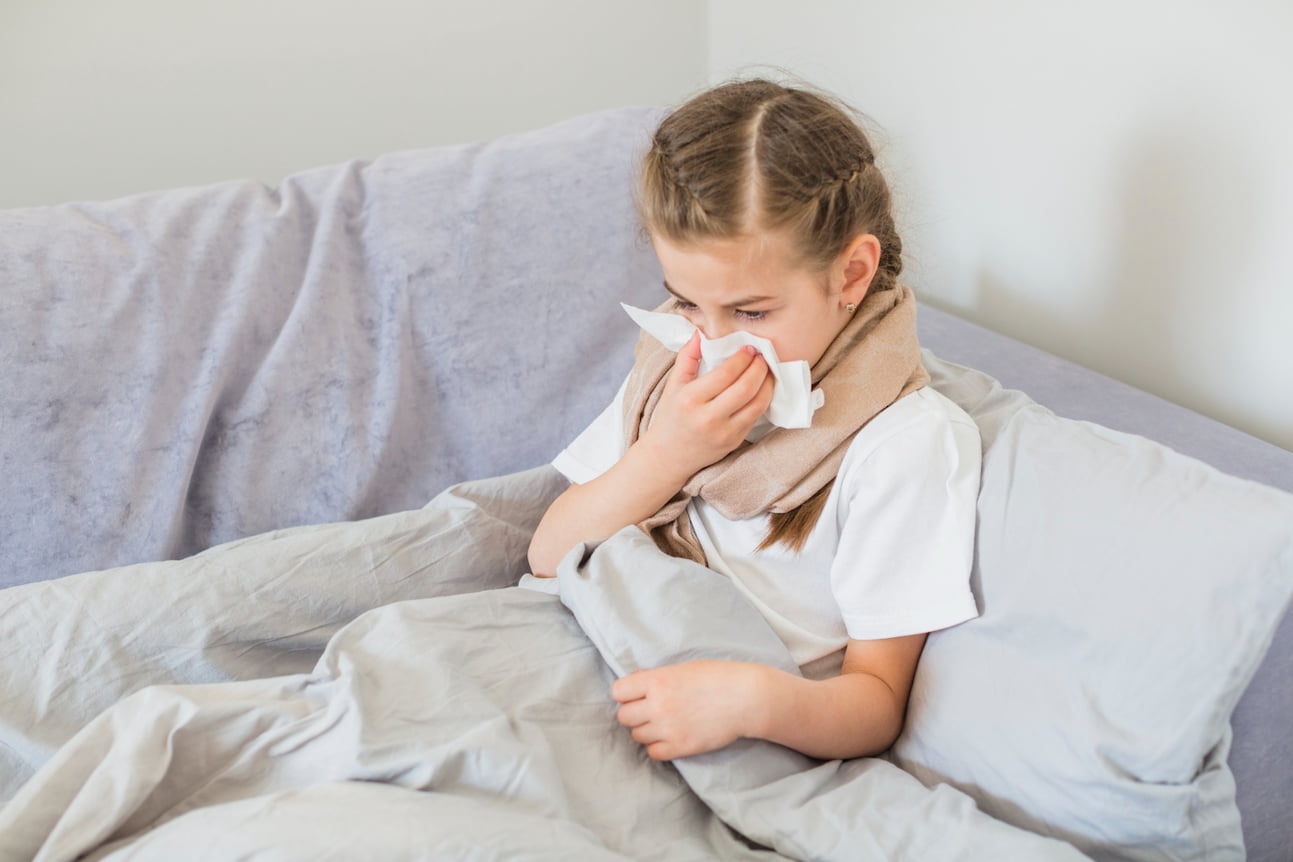What Is Croup?
Croup is a condition that causes a swelling of the voice box (larynx) and windpipe (trachea). The swelling causes the airway below the vocal cords to narrow, making breathing noisy and difficult. It is most commonly due to an infection.
Children are most likely to get croup between 3 months and 5 years of age. As they get older, it is not as common because the windpipe is larger and swelling is less likely to get in the way of breathing. Croup can occur at any time of the year, but it is more common in the fall and winter months.
TYPES OF CROUP
VIRAL CROUP
This is the most common type of croup. It is caused by a viral infection of the voice box and windpipe. It often starts out like a cold but slowly turns into a barky cough. Your child’s voice will become hoarse, and her breathing will get noisier. They may make a coarse musical sound each time they breathe in. This is called stridor. Most children with viral croup have a low fever, but some have temperatures up to 104°F (40°C).
SPASMODIC CROUP
This type of croup is thought to be caused by an allergy or by reflux from the stomach. It can be scary because it comes on suddenly, often in the middle of the night. Your child may go to bed well and wake up in a few hours, gasping for breath.
Your child will be hoarse and have stridor when they breathe in and may have a barky cough. Most children with spasmodic croup do not have a fever. This type of croup can recur—it is similar to asthma and often responds to allergy or reflux medicines.
Stridor is common with mild croup, especially when a child is crying or active. But if a child has stridor while resting, it can be a sign of more severe croup. As your child’s effort to breathe increases, they may stop eating and drinking. They also may become too tired to cough, and you may hear the stridor more with each breath.
TREATMENT AT HOME
If your child wakes up at night with croup, take them into the bathroom, close the door, and run the shower in the hottest setting to create steam. Sit in the steamy bathroom with your child for 15 to 20 minutes, as the warm, moist air can ease their breathing. You can also alternate with moving to an open window or outside in the cool air for a few minutes to reduce swelling.
While the barky cough may take longer to improve, seek medical attention if the stridor does not resolve.
Another croup episode might occur the same night or the next. If it does, repeat the steam treatment. If this doesn’t work, take your child outdoors to breathe the cool, moist night air, which can help open their airways. Again, if stridor persists, they should be seen at the office or emergency room.
TREATING WITH MEDICINE
If your child has viral croup and is not breathing better after a steam treatment, your child may receive a breathing treatment with epinephrine (adrenaline) to decrease the swelling.
They may also prescribe a steroid medicine to reduce the swelling. Steroids are usually taken by mouth or given by injection. Treatment with a few doses of steroids should do no harm. For spasmodic croup, your child’s doctor may recommend allergy or reflux medicines to help your child’s breathing.
Antibiotics, which treat bacteria, are not helpful for treating croup because it is almost always caused by a virus, allergy, or reflux. Cough syrups are not useful and may do harm.
CALL THE DOCTOR IF YOU NOTICE THESE SYMPTOMS OF CROUP
If you are concerned that your child’s croup is not improving, contact your child’s doctor, local emergency department, or emergency medical services (911), even in the middle of the night. Consider calling if your child displays the following symptoms:
- Makes a whistling sound while breathing in that gets louder with each breath
- Cannot speak or make verbal sounds for lack of breath
- Seems to be struggling to catch her breath
- Has bluish lips or fingernails
- Has stridor when resting
- Drools or has extreme difficulty swallowing saliva
HOW TO PREVENT CROUP IN CHILDREN
While it is difficult to prevent croup entirely, you can help reduce the risk by ensuring your child washes their hands regularly, avoiding exposure to sick individuals, and using a humidifier to keep airways moist.
Croup is typically manageable with proper care and is rarely life-threatening. However, if you are ever in doubt or concerned about your child’s health, please don’t hesitate to contact LaTouche Pediatrics at (907) 562-2120.

